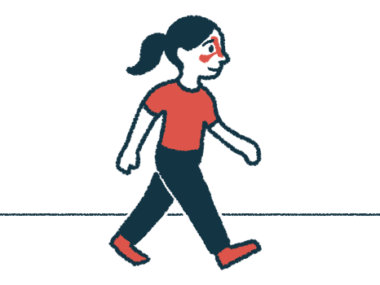How I prepare for the holidays while managing Cushing’s disease
Planning ahead is key to keeping stress levels to a minimum
Written by |

Halloween was just the start of the holiday season. I’m now looking forward to Thanksgiving, Christmas, and New Year’s, as well as my wedding anniversary and several birthdays. While I adore this time of year, it comes with challenges. Not only are the holidays expensive, but all of the commitments can be overwhelming, especially for someone who is chronically ill.
Cushing’s disease and the holiday season aren’t a great mix. Illness doesn’t take a holiday, meaning I don’t get a break from flare-ups, pain, or medications. Therefore, I’ve painstakingly planned ahead to ensure that the next few months go as smoothly as possible.
First and foremost, I plan financially. I don’t get much paid time off from my jobs, which means that every holiday is another day I don’t get paid. This can add a lot of stress. I start buying gifts for people in September so that the entire financial burden doesn’t fall in December, and I save any money I can by scrimping and cutting back. My medication and doctor appointments will cost the same even if I’m making less money, so I need to be in a good financial position to avoid going in the red.
I like to make travel plans in advance, too. I want to see family members who live in different states, including my baby nephew. Even gatherings with those who live close by need to be scheduled in advance. I schedule my doctor appointments and blood work around my holiday travels, and I share my work schedule with my family so that there are no expectations that I’ll be with them longer than I can manage.
Safety and pain management
There are many foods that I can’t eat right now due to my high inflammation levels, including red meat, carbs, and excess sugars. My body has been extra sensitive, and not every food is “safe.” For those who don’t know, a safe food is something I can eat anytime, regardless of my emotional or physical state. These tend to change every few months, but right now they’re pomegranate seeds, butternut squash, and raspberries. I don’t expect everyone to work around my dietary issues, so I’ll make at least one dish for every holiday to ensure there’s food I can eat, no matter how sensitive my body is that day.
I’m also hypersensitive to smells, so I bring lavender and alcohol prep pads with me everywhere I go. If anything suddenly makes me nauseous, be it food, candles, etc., I have my emotional support smells to balance me out.
I recently created a small to-go bag that I leave in my car. It contains pain medications, heating pads, comfy clothes, period products, and other emergency medications. Having it in the car makes me feel safe because I can grab whatever I need when I’m out and about, and I don’t have to worry about a Cushing’s flare-up.
Lastly, I let my family know what I can handle ahead of each holiday. I might not be able to sleep over if the only bedrooms are up a flight of stairs, and I remind my family in advance that I’m unable to drink alcohol. I also give an update on my health before arriving so my loved ones aren’t alarmed if I’m tired or need some time to myself.
The holidays can be wonderful, but they still put a lot of strain on chronically ill people. Take care of yourself, and know that you can be happy and overwhelmed at the same time. Feelings are multifaceted, and you’re not alone! Have a safe holiday season.
You can also follow my journey on TikTok and YouTube.
Note: Cushing’s Disease News is strictly a news and information website about the disease. It does not provide medical advice, diagnosis, or treatment. This content is not intended to be a substitute for professional medical advice, diagnosis, or treatment. Always seek the advice of your physician or other qualified health provider with any questions you may have regarding a medical condition. Never disregard professional medical advice or delay in seeking it because of something you have read on this website. The opinions expressed in this column are not those of Cushing’s Disease News or its parent company, Bionews, and are intended to spark discussion about issues pertaining to Cushing’s.







Leave a comment
Fill in the required fields to post. Your email address will not be published.